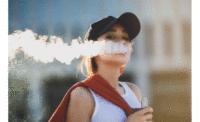Another country bans glyphosate use

Luxembourg has become the first European Union (EU) country to completely ban products containing glyphosate, the controversial herbicide at the center of high-profile lawsuits, and conflicting scientific studies and health claims. Glyphosate has already been banned in Vietnam and Thailand. Mexico has announced plans to do the same.
Luxembourg’s recently enacted ban will go into effect in three phases: authorization to market it will be withdrawn on February 1, 2020. Stocks will be allowed to be used up until June 30. Finally, the total ban on the use of herbicides containing glyphosate will go into effect on December 31, 2020. The measure was announced last month.
Glyphosate, which controls broadleaf weeds and grasses, has been registered as a pesticide in the U.S. since 1974 and has been reviewed and approved by the EPA in regular reassessments since then.
Its use in RoundUp, a popular weed killer used on farms as well as lawns, has led to multi-million-dollar jury awards to people who claim that exposure to the product caused their non-Hodgkins lymphoma.
The EPA and Monsanto – RoundUp’s manufacturer – claim the product is safe when used according to the directions on the label. The EPA says on its website that it “continues to find that there are no risks to public health when glyphosate is used in accordance with its current label and that glyphosate is not a carcinogen… Glyphosate products can be safely used by following label directions. There are no risks to children or adults from currently registered uses.”
Monsanto cites numerous studies it says demonstrates that there is no health risk from using RoundUp. However, a study by researchers at the University of Washington found that glyphosate raises the risk of non-Hodgkins lymphoma to those exposed to the substance by 41 percent. The World Health Organization's International Agency for Research on Cancer said glyphosate is "probably carcinogenic to humans," but regulatory agencies in Canada, Australia, Germany, New Zealand and Japan have classified it as noncarcinogenic.
To complicate the issue further, Bayer – the parent company of Monsanto – claims the use of RoundUp is actually good for the environment, because it reduces the need for tillage, a traditional form of weed control that involves turning over the soil. According to Bayer, tillage releases greenhouse gases stored in the soil and worsens erosion, which robs the soil of nutrients.
While the debate rages on, measures partially banning glyphosate are being adopted in various EU countries, although not without pushback from supporters of products that contain the chemical. In Austria, for instance, the parliament voted to ban glyphosate in July 2019. However, in December 2019, the Austrian home affairs ministry announced that the ban would not be implemented, thereby avoiding a conflict with the European Commission on a procedural aspect (the lack of notification of the measure to the European Commission). It is now up to the new Austrian government formed this month to decide the question. However, this government is a coalition between the Christian Conservatives, who are in favor of retaining glyphosate-based herbicides on the national market, and the Greens, who favor of banning it. In September 2019, Germany announced that it would ban such products as of 2023, even if the EU renewed the authorization of this substance.
Looking for a reprint of this article?
From high-res PDFs to custom plaques, order your copy today!





